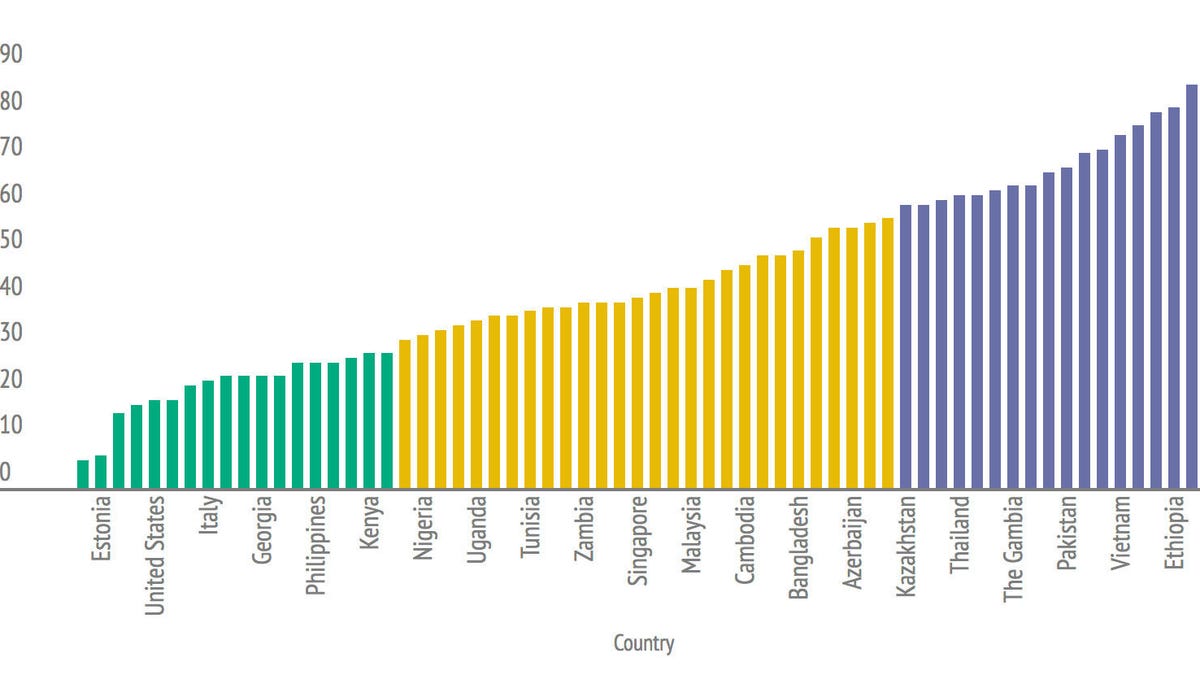Election tampering is newest setback for internet freedom
Governments are bending the internet toward their own ends, Freedom House finds.
It was another down year for freedom on the internet, a new report finds.
Of 63 countries studied, internet freedom worsened in 32 and got better in 13, according to the latest assessment from Freedom House, a nonprofit devoted to expanding those freedoms. Part of the problem: election tampering in the US and 17 other countries.
"Governments around the world have dramatically increased their efforts to manipulate information on social media over the past year," the report said. The US was affected by a rise in "fabricated news articles," as well as divisive partisan vitriol and aggressive harassment of journalists, the report said.
Freedom House found technology was being used aggressively to push agenda-driven information online. In 33 countries, including Venezuela, the Philippines and Turkey, "governments were found to employ armies of 'opinion shapers' to spread government views, drive particular agendas and counter government critics on social media," the report said. "Over the last few years, the practice has become significantly more widespread and technically sophisticated, with bots, propaganda producers, and fake news outlets exploiting social media and search algorithms to ensure high visibility and seamless integration with trusted content."
Freedom House is an independent watchdog "dedicated to the expansion of freedom and democracy" across the globe. It gets funding from Facebook, Yahoo, Google, Twitter, the US State Department and others.
The US remains a place of relative online liberty, though it slipped a notch over the last year, the report said. China was the "worst abuser of internet freedom" for a third consecutive year. The situation in China worsened with a crackdown ahead of a meeting that opened Xi Jinping's second term as general secretary.
"The year's restrictions included official orders to delete all online references to a newly discovered species of beetle named after Xi, which the censors reportedly found offensive given the beetle's predatory nature," according to the report. The report also cited a stricter Chinese law obliging internet companies to register users under their real names and aid law enforcement investigations.


